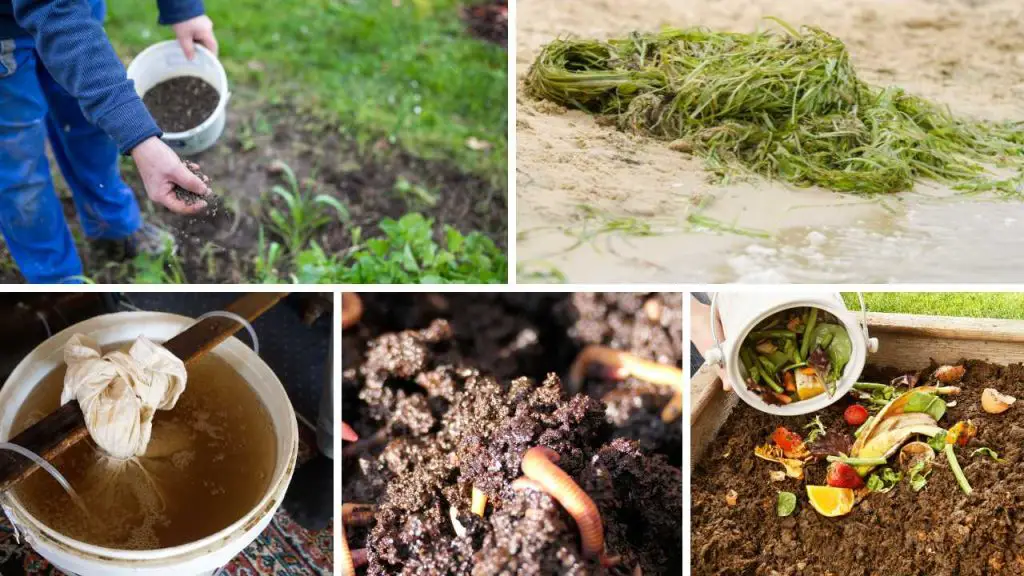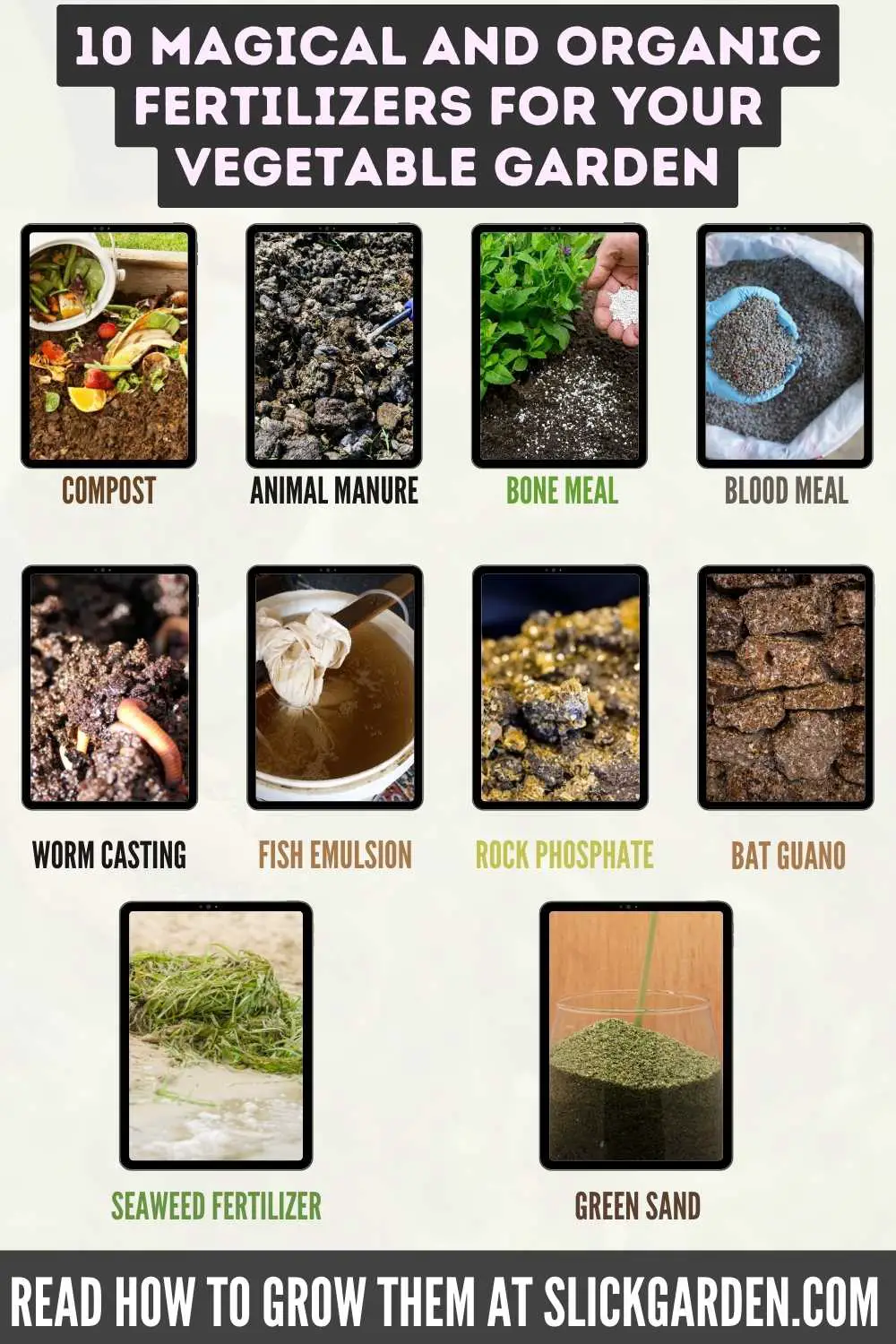Sometimes it happens your plants start struggling to grow. If you see that the leaves are dropping or turning to odd colors it means your plants are not thriving well. This may happen if you are not using the right gardening techniques.
The structure of the soil is very important for the productivity of vegetable plants; you cannot compromise on the fertility of the soil. If you examine such a situation you need to amend the soil in which your plants are growing.

Using organic fertilizer is the best way to keep your soil healthy and availability of all the nutrients for your plants.
Synthetic Vs Organic Fertilizer
When your vegetable plants do not get the required nutrients then their growth will stop and they will not produce vegetables according to your needs. When your soil is healthy then your plant will not suffer.
To fulfill the deficiency of the soil you can use fertilizers and make the soil ideal for your plants. Nitrogen, Phosphorus, and Potassium are the main nutrients that plants need. Now we will discuss with you what is the difference between synthetic and organic fertilizers.
Synthetic Fertilizers are very fast acting and you can see results of rapid growth in your plants. When you add synthetic fertilizer to the soil it will improve its quality texture and fertility.
Such types of fertilizers are water soluble and easily absorbed in the soil. If you apply too much synthetic fertilizer then it can burn your vegetable plants so you must avoid overusing fertilizer because all your hard work will be wasted in such a situation.
The most important drawback of synthetic fertilizer is that it contains salts that make your soil acidic. It means there are better options for Organic gardening.
The most important thing about organic fertilizer is that if you apply it properly it won’t burn your vegetables plants. After the addition of organic fertilizer to the soil it will stimulate microorganisms.
At the same time, it will improve the structure of the soil. As you know the microbes present in the soil convert organic fertilizer into soluble nutrients. These nutrients are easily absorbed by vegetable plants.
Factors Need To Be Considered While Choosing Organic Fertilizer For Your Vegetable Plants
Before selecting any organic fertilizer for your vegetable garden you have to consider certain factors. First of all, you need a soil test so you can easily select the right type of organic fertilizer for your vegetable plants.
After a soil test, you will understand what nutrients are needed by the soil. Application of the right organic fertilizer will help to improve plant growth. A soil test will help you to understand the following factors.
SOIL TEXTURE
The texture of the soil is very important for the growth of your vegetable plants. Your soil may be sandy, clay, silty, or loamy. You have to understand the texture and think about how you can improve it so your plant tries well.
pH LEVEL
The pH level of the soil shows that your soil is acidic or alkaline. On the pH scale, there are 14 points. If the pH level of the soil is zero it means it is highly acidic and 14 indicates that your soil is alkaline.
A pH level of 6.5 or 7 shows that the soil is neutral, neither alkaline nor acidic. You can amend the soil according to the needs of your plants.
NUTRIENTS
The basic three nutrients that are needed by plants are Nitrogen, Phosphorus, and Potassium. All these nutrients are represented by the letters N-P-K. These are primary nutrients and your plants need them for their growth.
10 ORGANIC FERTILIZERS FOR VEGETABLE GARDEN

When you grow vegetable plants in your garden they absorb all the nutrients from the soil. When you start planting new crops in the spring then you have to replace those nutrients.
To maintain the fertility level of the soil you have to add fertilizer because it is a nutritional supplement. Before application of the fertilizer, you have to check what type of nutrients your plants need and what is the deficiency in the soil.
1- COMPOST
Compost is an organic fertilizer that produces beneficial bacteria and fungi for your plants. As we are telling you about the organic fertilizer that is needed by vegetable plants composed to make your soil more fertile and healthy.
When you use compost for improving the health of your soil then there is no need for adding chemical fertilizers.
The best time to apply the compost to your vegetable plants is in early spring. You should understand one thing: compost breaks down very slowly so it will provide nutrients to the soil over time.
But in case, if you are using water-soluble chemical fertilizer, it will give you a prompt result.
2- ANIMAL MANURE
Another cheap organic fertilizer that can be used to amend the soil is animal manure. The use of animal manure can make your soil a more effective growing medium for your vegetable crops.
If we talk about the macronutrients you can get from manure, it depends on the kind of animal manure you are using. You should never use fresh and hot manure of animals because it can burn your vegetable plants. It is better to use aged manure that can help to make your soil more rich.
You should not worry about the texture of this soil because it will not change after adding the animal manure. The best time of adding animal manure to your vegetable garden is during the fall.
It is better to spread the manure properly to incorporate it into the soil. You can not use any waste from different animals such as cats, dogs, and goats including humans.
No, you think about which animal manure you can use for your vegetable gardens. The acceptable manures of chicken, sheep, horse, cow, and goat can be used.
Chicken manure contains high nitrogen content. You can use it for those plants that need more nitrogen for their growth. The manure of goats is less smelly. The manure of cows is very beneficial because it contains a low amount of nitrogen so your plants will not burn.
3- BONE MEAL
As the name shows, this organic fertilizer is made from creamed animal bones. When you apply this organic fertilizer to your vegetable gardens then your plants will become healthier and stronger. Keep in mind that you can’t use bone meal in all situations.
When you use a bone meal for your plants then there is no need of using chemical fertilizers. The main nutrients your plants will get from bone meal are zinc, magnesium, and iron.
Gradually you will see the structure and quality of the soil will be improved and your vegetable plants produce more healthy crops for you. In case you use more bone meal for your plants then it will not burn them.
It is recommended that before applying bone meal to your vegetable gardens you should perform a soil test. A soil test will tell you what type of nutrients your soil needs.
For 100 ft² of soil, 3 cups of bone meal is enough. There is no need to use bone meal frequently for your plants.
Keep Reading:
- 15 Simple And Inexpensive Homemade Fertilizers
- 15 Stunning Gardening Hacks For Your Garden
- 20 Free Cheats For Your Garden
4- BLOOD MEAL
You should be surprised to know that you can use the blood of animals for making your soil more rich. It is an organic fertilizer and a byproduct.
You can use the blood of a cow or any animal that is slaughtered for its meat. The use of blood meal is very easy. Take the blood and dry it to make powder. It contains a high amount of nitrogen with phosphorus and potassium which is good for your plant.
If your plants need nitrogen for their growth then you can use blood meal. The ideal time for applying blood meal to the soil of your vegetable garden is in spring.
You can reapply it every 2 to 3 months during the growing season. You need one to two lb of bone meal for a hundred square feet. If you are using a bone meal for the first time, you must not use more than 1 lb.
5- WORM CASTING
Worm casting is the waste of earthworms. This is an organic fertilizer you can also call it warm Poop or worm-casting manure. The food of worm casting is compost and they make the soil richer by their waste.
Worm casting helps to improve the aeration and drainage of the soil. When the quality of the soil improves it directly helps in the growth of your vegetable plants.
The other benefit of worm casting is that it helps to repel aphids and spider mites and prevent your vegetable plants from many pests.
As you know these tiny monsters create an alarming situation for your vegetable plants. When you use worm casting then this organic fertilizer does its best and won’t harm your plants.
6- FISH EMULSION
Another organic fertilizer is made from by-products of fish oil and fish-made industries. This is an organic liquid fertilizer that is also called fish fertilizer.
You must make it diluted with water before using it. Two tablespoons of fish emulsion are enough for mixing in one gallon of water. Now deodorized fish emulsion is also available in the market that does not have a strong smell.
The ideal time for using fish emulsion in your vegetable garden is in early spring. Fish emulsions contain a high amount of nitrogen. As you know, nitrogen can burn your plants. Too much of a fish emulsion can damage your plants.
7- SEAWEED FERTILIZER
Seaweed is an organic fertilizer. Seaweed fertilizer contains a lot of nutrients such as potassium, magnesium, iron, zinc, and nitrogen. All these nutrients are good for vegetable plants’ health.
Plants need fertilizer to fulfill their deficiency of nutrients seaweed is a natural organic fertilizer that helps to speed up the growth of vegetable plants when winter comes the growth of plants slows down. At this stage, you can use seaweed fertilizer.
When you are transplanting your plant then you can spray the seaweed liquid seaweed fertilizer on the root ball of the plant this will prevent your plant from shocking.
You can make a liquid spray from this fertilizer by mixing it with water. This display is perfect for your small houseplants or herbs.
8- ROCK PHOSPHATE
Rock phosphate is a mined rock that has limestone and clay and phosphorus. Rock phosphate is a rich organic source of phosphorus for your plants.
It will encourage the growth of healthy blooms in your vegetable plants You can prevent your plants from pests and different diseases when you use rock phosphate and it enhances the flavor of your edible plants.
Then you are transplanting your plants making holes in the ground and adding Rock phosphate to them. This organic fertilizer works best if there is a deficiency in phosphorus in the soil.
When you apply rock phosphate in your vegetable garden then there is no need for phosphorus in the soil for 5 years.
9- GREEN SAND
Another organic fertilizer is green sand which is a slow-release fertilizer that has many organic minerals for your vegetable plants. This is also called glauconite, its color is bluish-green.
Green sand contains silica, iron oxide, marine potash magnesia, phosphoric acid, and lime.
When you apply green sand in your vegetable garden then you will see many benefits, for instance, the structure of the soil will be improved.
This organic fertilizer encourages root growth and provides all the desired nutrients to your vegetable plants. Keep in your mind this fertilizer is not water-soluble You should apply it directly to the soil without mixing it in water. The ideal time for applying green sand in your soil is in early spring.
10- BAT GUANO
Bat poop is known as bat guano, it is an organic fertilizer. After the addition of this amazing manure fertilizer, your plants will become stronger and healthier.
Your plants start producing more flowers after the application of bat guano in your vegetable garden. This fertilizer is in dry form and you can make it makes it solution by adding it in water.
When you mix it in water then it will become a slow-release fertilizer that contains a high amount of nitrogen. Its application encourages vigorous vegetative growth in your plants and prevents them from many fungal infections.
